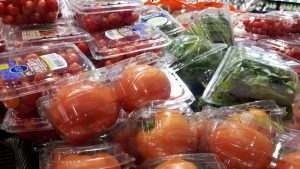Coca-Cola, PepsiCo, Nestlé named top plastic polluters in global audit of plastic waste
Coca-Cola Company, PepsiCo and Nestlé continue to be the world’s biggest plastic polluters, according to data compiled by the global environmental organization Break Free From Plastic.
The group had more than 14,000 volunteers in 55 countries in Asia, Europe and North America collect nearly 350,000 pieces of tossed plastic to trace the source of the waste and published its results Monday as part of a push to reduce single-use plastics.
The audit found that 63 per cent of the plastics examined were clearly marked with a consumer brand name.
Volunteers collected plastic from city streets, parks, forests, beaches, coastal areas and other sites where plastic waste accumulates. Because of the COVID-19 pandemic, about 13 per cent of the items examined came from audits of waste discarded indoors — in homes, offices, schools and elsewhere.
The group also relied on data collected by more than 300 so-called waste pickers. These are people who make a living by salvaging reusable or recyclable materials from landfill or other waste disposal sites.
The brand audits were conducted between Aug. 1 and Sept. 30. Volunteers identified 44 different retail brands in Canada and found the highest number of plastic items they collected came from Costco, followed by PepsiCo, SC Johnson and Walmart.
Break Free From Plastic said the top three companies on the list, well known for the plastic bottles used to package their product, have made the list every year since the group’s first brand audit for plastic polluters was conducted in 2018.
The Coca-Cola label was discovered in more countries than the two plastic-polluting firms that were next on the list. All three companies have said they are working to address wasteful packaging — but at least one environmentalist alleges they are instead ramping up their use of plastic.
The group acknowledged the limitations of relying on self-reported data submitted by participants from around the world.
“The data submitted is a sample of global plastic waste and cannot claim to be fully representative of all plastic pollution,” the report said. “It is possible that some brands not captured in this report may produce even more plastic pollution than those listed in this report.”
It also said that while it tried to match brands with their parent companies, it’s possible that some brand-parent company correlations were missed because the data included “thousands of brands and parent companies from many countries in different languages.”



